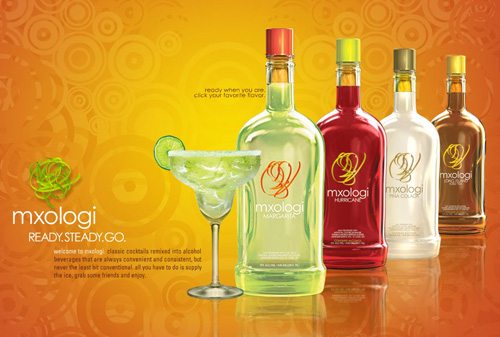These beer products look a lot like spirits, don’t you think? They have a spirits-related brand name, common cocktail names, spirits-shaped bottles and an alcohol content that is high for beer. The website goes so far as to describe the first one as a “traditional margarita.” The other versions are Hurricane, Pina Colada and Long Island Iced Tea. In a bout of writing that would not make Don Draper proud, the Pina Colada back label would have you believe this product, going for a few bucks per bottle, is the next best thing to having your own island. If so, I wouldn’t want to draw whatever is third best. Perhaps mxologi is an Anheuser-Busch response to the very successful line of malt beverages under the Smirnoff name. After all, the Smirnoff products certainly suggest spirits, and also happen to be made with sucralose.
Continue Reading Leave a Commenthybrid
Vice

Here is a “delightfully chilling blend of Canadian icewine and vodka ~ VICE.” It is produced by Vineland Estates Winery, in Ontario, “one of Canada’s oldest and most renowned wineries.” The Vice website tends to suggest that Vineland would have liked to present this as a “martini,” but TTB can be protective of this term, and so it looks like Vineland settled for the term “cocktail” instead. Speaking of vice, perhaps it’s time to sort out whether we are in the “vice” business or not. The Online Etymology Dictionary defines “vice” as “moral fault, wickedness.” The term dates back at least 700 years, to about 1300, from French. I can think of many things more wicked and fault-worthy than a 45 proof wine concoction, taxed and regulated out the wazoo. If this is vice, what is virtue? Here is a lawyer who scrupulously gravitates toward vice matters in his practice.
Continue Reading Leave a CommentIs Beer the New Wine?
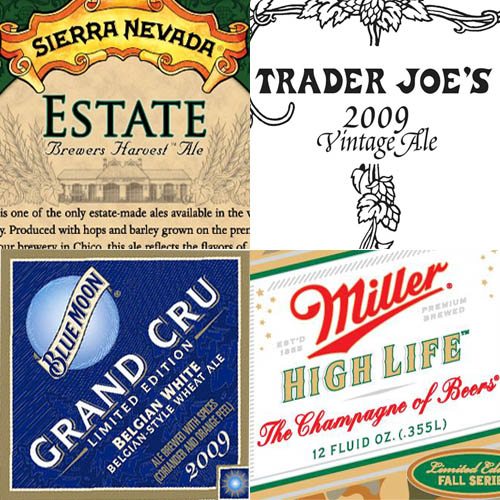
At a 2009 National Alcohol Beverage Control Association (NABCA) panel discussion, Boston Beer Company’s Jim Koch boldly proclaimed that “beer is the new wine.” According to Wine and Spirits Daily, Koch said:
With the emergence of the new mentality about beer driven by small craft brewers, America is starting to create a beer culture in the same way America has created a wine culture.
Is Koch right? The labels tell part of the story. Lately there are many examples of beer labels with terms and elements formerly associated only with wine. First is Sierra Nevada’s Estate Brewer’s Harvest Ale. TTB sets forth strict rules for wine labeled with the word “estate.” One such rule is that the wine must be produced from grapes grown on land owned or controlled by the bottling winery. According to Greg Kitsock of the Washington Post, Sierra Nevada produces their Estate Ale with hops and barley grown only at their brewery in Chico. The label adds that “this ale reflects the flavors of our surroundings in California’s fertile Central Valley.” Second is Trader Joe’s 2009 Vintage Ale, produced by Unibroue of Canada. For wine labels, it is clear that a vintage date means one thing: the year in which the grapes were harvested. What exactly does it mean...
Continue Reading Leave a CommentTags: business strategy, hybrid, policy
Barleywine; Is it Beer, Wine or Both?
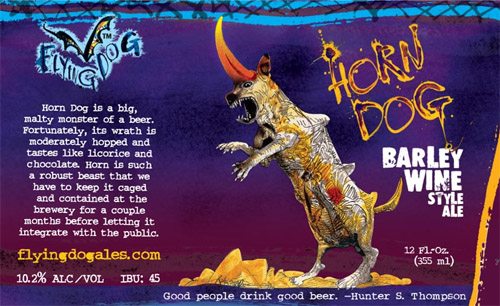
Beeradvocate shows over 400 barleywines, from the US alone. Because this type is common, but not nearly so well known as stout or rum, for example, we wanted to take a closer look. Beeradvocate says:
Despite its name, a Barleywine (or Barley Wine) is very much a beer, albeit a very strong and often intense beer! In fact, it’s one of the strongest of the beer styles. Lively and fruity, sometimes sweet, sometimes bittersweet, but always alcoholic. … English varieties are quite different from the American efforts, what sets them apart is usually the American versions are insanely hopped to make for a more bitter and hop flavored brew, typically using American high alpha oil hops. English versions tend to be more rounded and balanced between malt and hops, with a slightly lower alcohol content, though this is not always the case. … Most Barleywines can be cellared for years and typically age like wine. … Average alcohol by volume (abv) range: 8.0-15.0%.
Wikipedia provides additional details : “In the United States, barley wines are required … to be called ‘barley wine-style ales.’ Though this could be taken by some to imply that they are not truly barley wines, in fact it only means that they, like all barley wines, are not truly...
Continue Reading Leave a CommentThe World's First Chardonnay Flavored Vodka
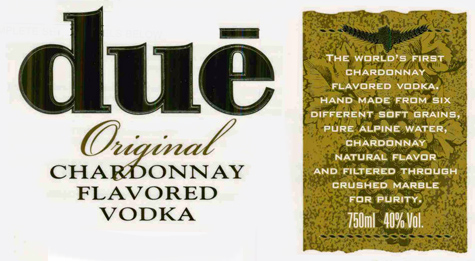
Here is dué. It claims to be “The World’s First Chardonnay Flavored Vodka.” It is made in Italy and imported by Francoli of California. Francoli also has a Merlot Flavored Vodka. Emily Haile found this approval from way back in 2001 and brought it to our attention. The dué grape flavored vodkas are not to be confused with Ciroc. The latter is distilled directly from “Fine French Grapes,” as opposed to adding grape flavor to a grain vodka.
Continue Reading Leave a CommentTags: hybrid, ingredients, type
FDA Cider, Apples and Nutrition Facts
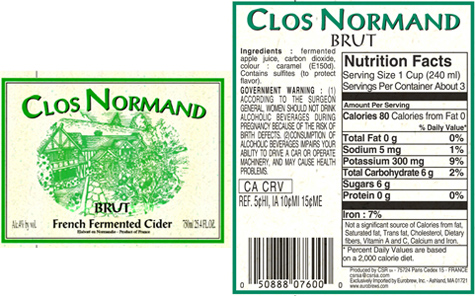
This French Apple Cider provides a small taste of what is coming soon. It is our understanding that TTB has no plans to require or encourage ingredient labeling, such as that on the back label here. But TTB does have big plans to require Serving Facts Labeling (similar to this Nutrition Facts labeling) someday very soon. It’s a big, important change. There is a lot of data on this back label; much of it will be required in a few years and almost none of it would have been required 20 years ago. The Government Warning arrived 20 years ago and redemption labeling (as well as the UPC) started appearing a few decades ago. This COLA is unusual because FDA (not TTB) typically has authority over wines under 7% alc./vol. (such as this cider). But here the importer noted (at box 19) “submitting for review of health warning.” TTB retains control over the Warning and the wine tax, even in those instances where general labeling jurisdiction shifts over to FDA. Some time after approval, TTB apparently decided to hand this back to FDA, as the current status of this approval is “surrendered.”
Continue Reading Leave a CommentTags: hybrid, legally interesting/controversial, policy, serving facts/allergens
